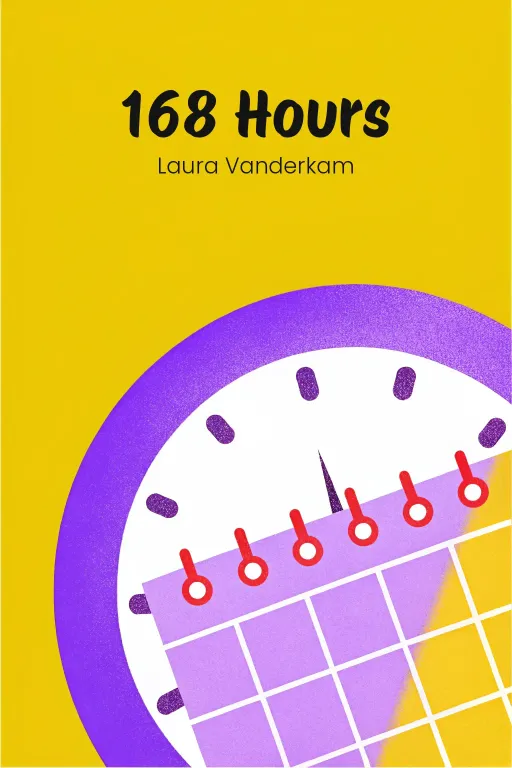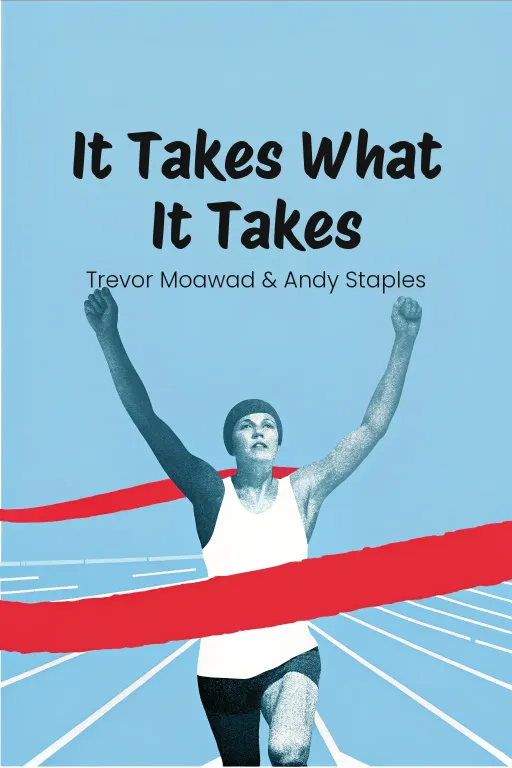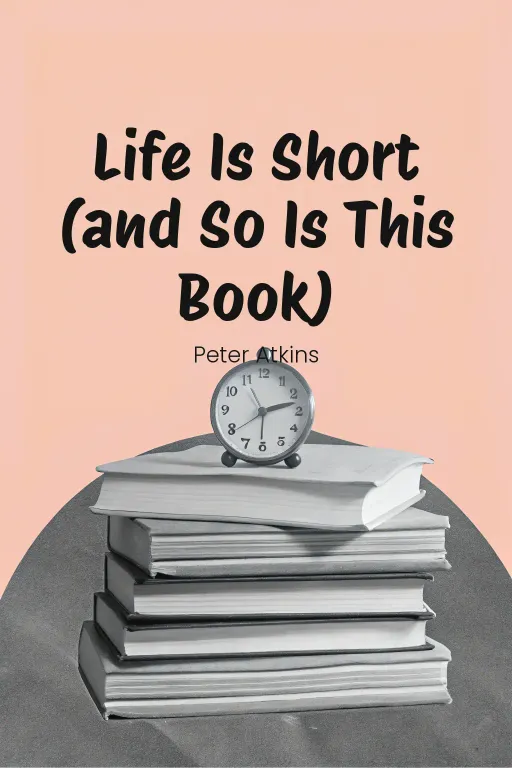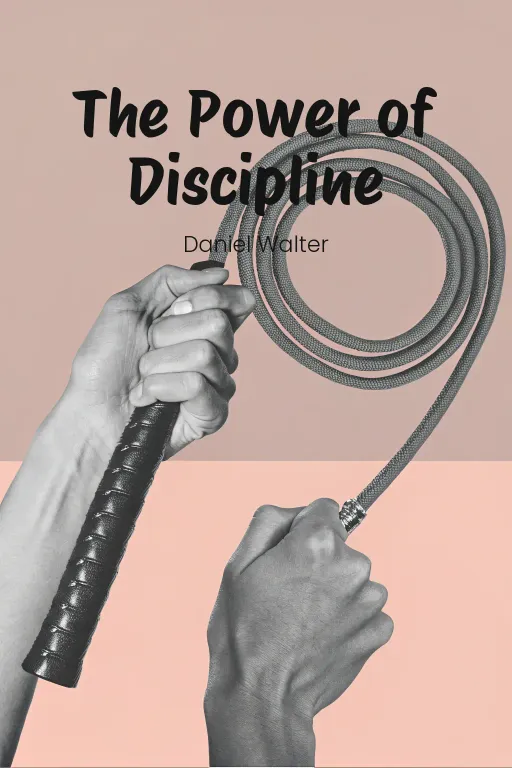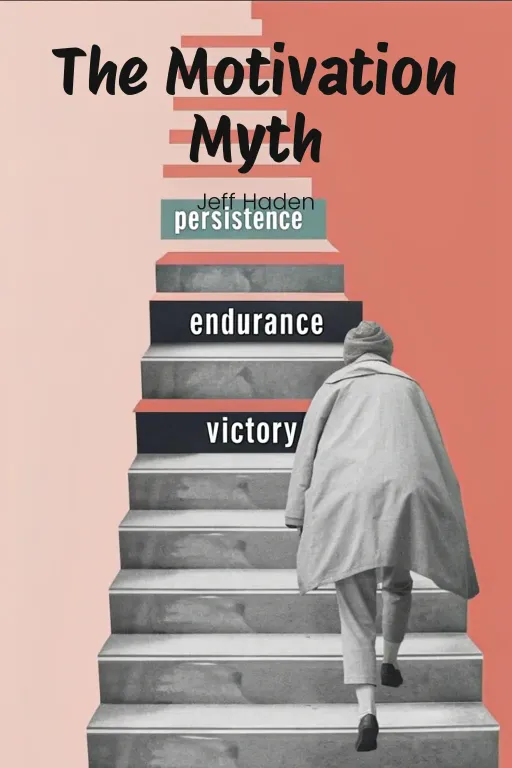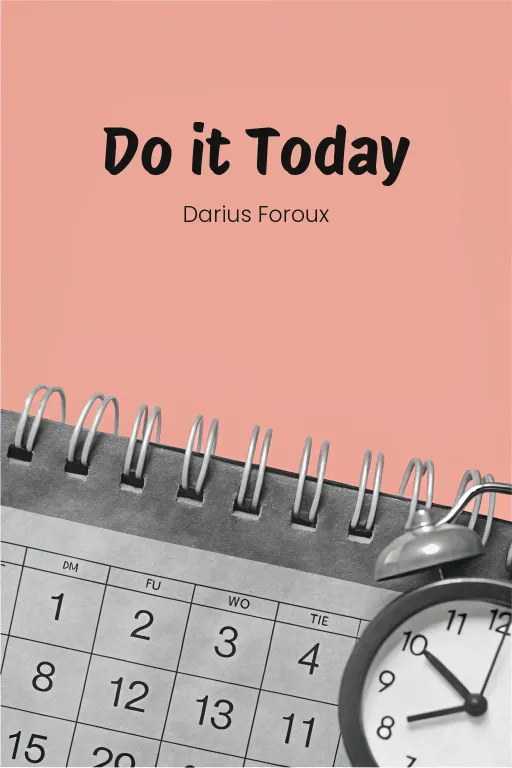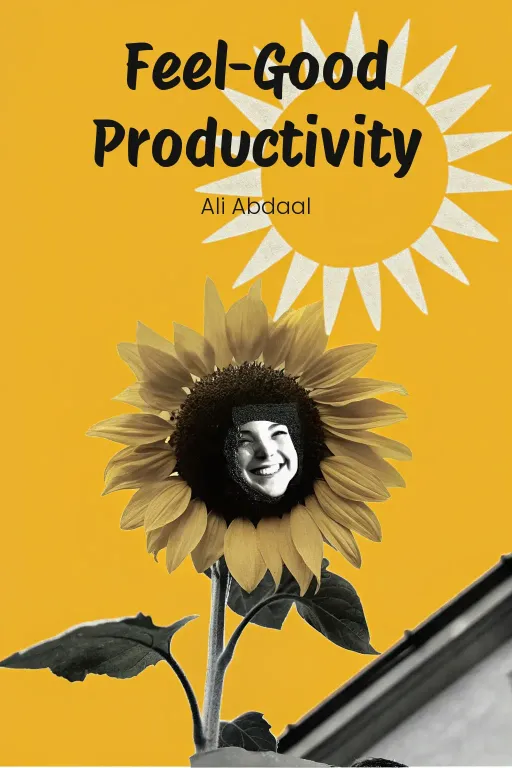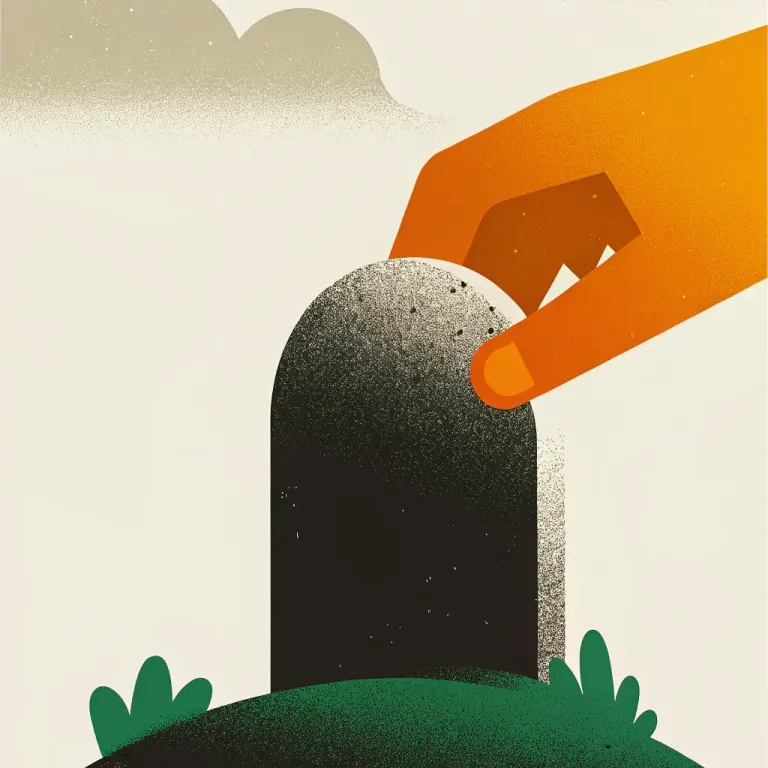
Small Choices, BIG Life!
Podcast by Beta You with Alex and Michelle
Turning Simple Disciplines into Massive Success and Happiness
Introduction
Part 1
Alex: Hey everyone, and welcome back! Ever stop to wonder why some people seem to nail their goals, while others, who are trying just as hard, just can't seem to catch a break? Michelle: Ooh, intriguing. Let me guess – it's not about some secret formula, right? No get-rich-quick schemes or miracle weight-loss fads? Alex: Exactly, Michelle. It boils down to what Jeff Olson calls "The Slight Edge." The book makes a pretty simple, yet powerful claim: everything you want to achieve comes down to the small, consistent choices you're making every single day. It's not flashy, but it's transformative. Michelle: So, basically, instead of chasing overnight success, we’re talking about focusing on the little things? Like, passing on the late-night TV binge or, uh, maybe skipping those cookies I devoured last night? Alex: Precisely! Olson walks us through how these little, incremental actions compound over time, whether you're working on your finances, your health, or even your relationships. He uses real-world examples and analogies to debunk the whole myth of overnight success, and really highlights how persistence and taking responsibility are the real game-changers. Michelle: Okay, I like the concept, but what's our plan of attack for today? How are we going to unpack "The Slight Edge"? Alex: Good question! First, we'll dig into the mechanics of these tiny daily choices– that's where the real magic happens, like a snowball effect. Then we're going to connect these small habits to the bigger areas of our lives - think health, wealth, and relationships. Think of it kind of like planting seeds in your own personal garden. And finally, we'll explore how this approach isn't just about you today - it's about creating a lasting legacy. Imagine it as building a bridge to the future. Michelle: Sounds like we're tackling the big stuff by breaking it down into manageable chunks. Alright, I'm intrigued, where do we start?
The Slight Edge Philosophy
Part 2
Alex: So, let's dive into the core idea here: the magic of compounding through small, consistent efforts. In “The Slight Edge”, Jeff Olson argues that every little choice we make, seriously, every single one, nudges us either toward success or, well, the opposite. He uses these curves, right? The Success Curve and the Failure Curve. It’s not like poof, you're suddenly on one. It's the result of all your daily habits, adding up over time. Michelle: Exactly, it's about how today’s choices echo into the future. Choosing an apple instead of a candy bar? That's not just about today's calories. It’s setting a course for months, even years, down the line. But, come on, Alex, most people don't think that far ahead, do they? How do you connect a tiny little decision now to some massive outcome years from now? Alex: That’s precisely Olson’s point! He reframes those tiny choices as the very foundation for growth or stagnation. He uses this great analogy about a penny doubling every day for 31 days. At first, it seems like nothing—ten cents, twenty cents. Big deal, right? But by the end, you're sitting on over $10 million! It's such a clear way to illustrate the sheer power of compounding. Michelle: The math is solid, but... Alex, let's be real. Most of us are terrible at living that "31-day penny" mentality. We want results yesterday. This whole culture is built on quick fixes. How can we expect people to embrace this slower, compounded approach when they're constantly bombarded with instant gratification? Alex: That’s a completely fair point, Michelle. Olson does acknowledge that this is a challenge. He says it has to begin with awareness. You need to be conscious of each decision you're making. Recognizing that skipping a workout or scrolling through Instagram instead of reading, won’t ruin you immediately, but over time, those small acts add up negatively. It's like credit card debt; one small purchase isn't a big deal, until it balloons into something you can't handle. Michelle: Right, scary parallel. He also talks about how simple these actions are, doesn’t he? Like, the most impactful daily habits – reading ten pages, saving a few bucks – are often really simple to do. But, paradoxically, because they’re so simple, they’re also so simple not to do. Alex: Exactly! Olson calls it the paradox of simplicity, and it's what trips people up. A glass of water in the morning, for example, is a positive thing. It’s easy to skip because it's not a heroic action. But consistently choosing water over soda? Months later, that can transform your health! It’s those mundane, almost invisible choices that pave the way for actual change. Michelle: And here's the thing that gets me: The time factor. Olson's asking for patience. He compares it to planting a seed -- needing time to grow. I mean, Alex, not everyone's wired for that waiting game! You plant that seed, you don't see anything the next day, and suddenly you feel like you've failed. Alex: Totally! That is a very human reaction, Michelle. Olson addresses that very thing by talking about having faith in the process, trusting in that compounding effect. It’s not about seeing results immediately, it's about trusting that those small actions are building momentum. But that patience? You have to develop that like a muscle. And he tells incredible stories in the book to back this up, like the woman who shined shoes? Michelle: Ah, the shoeshine woman. That was a tough one to read, right? She's at the airport, working so hard for her daughter's cheerleading dreams, which is admirable. But then Olson paints this "what if" scenario that’s just heartbreaking. What if she had applied the Slight Edge? Reading, learning, even a handful of little steps toward empowering herself financially? How different could her life have been? Alex: Exactly! She's got such enthusiasm and dedication, but Olson uses her story to really highlight untapped potential. It's not about blaming her but more about showing how small, consistent shifts in behavior could build a totally different future. It's a poignant reminder that the Slight Edge isn't about where you start, it’s that this philosophy is open to anyone. Michelle: But there’s a bit of a warning in her story too, isn’t there? The hidden danger of neglect. Olson talks about how easy it is to let things slide – skip saving, postpone a workout. You don’t feel it immediately, but after years, that neglect compounds just as powerfully as the positive actions. It’s like living on autopilot while your life’s steering straight toward an iceberg. Alex: That is the dual edge of this philosophy. Neglect is just as simple as commitment. The Slight Edge asks us to take responsibility for those little choices because they are shaping our path. And the second you internalize that, you realize that the power to shape your life is completely in your own hands.
Practical Applications of the Slight Edge
Part 3
Alex: Understanding this philosophy naturally leads to exploring its daily applications. That’s where “The Slight Edge” “really” shines, you know? It’s not just a theoretical framework; it’s about practical implementation. Olson walks us through how this mindset can shift the trajectory of key life areas—health, finances, relationships, and personal growth. It’s about connecting those small, everyday behaviors to extraordinary outcomes. Michelle: Okay, so we're moving from theory to practice. I like that. Let's start with health. That seems like a straightforward area for “small, consistent actions,” right? But, playing devil's advocate, when people hear "small steps," they often think of fad diets or miracle fitness hacks. How does Olson's approach stand apart from all that noise? Alex: Well, Olson makes it very clear that it’s “not” about extremes or gimmicks. In health, he emphasizes sustainable, repeatable choices. For example, a daily 15-minute walk might seem insignificant compared to a monthly two-hour gym session. But that daily walk has a much bigger impact on cardiovascular health, stress levels, and even energy levels, you know? So, consistent action trumps the "all-or-nothing" approach every time. Michelle: I get the logic, but here’s a challenge I see. A short walk or swapping soda for water doesn’t “feel” life-altering in the moment. You're not going to get ripped or get a gold medal after that first 15-minute stroll. Then how do you hold onto that long-term vision? Alex: True. Olson addresses that too, actually. He tells a story of a middle-aged woman who started with a simple 20-minute daily walk after some bad news from her doctor, you know? Day one probably felt…well, small. But she stuck with it, added healthier eating habits, and her health completely transformed. The results weren’t instant, but by sticking to that slight edge, she not only improved her health, but inspired her family to join her walks, creating that ripple effect. Michelle: That ripple effect is interesting, because it shows how small actions can spread beyond you…like a pebble in a pond, right? The same must apply to finances, then? Another area where “small actions over time” sounds great in theory but can be tough to stick to in real life. Alex: Absolutely. And the key here is harnessing compounded growth. Olson stresses how even small financial habits—like saving five or ten dollars a day—can snowball into massive outcomes if you’re consistent. He describes two young people saving for retirement. Both invest $2,000 a year, but one starts at 24, and the other waits six years. That delay means the first person ends up with over a million dollars by retirement, while the late-starter has to invest decades longer just to catch up! Michelle: That’s a dramatic comparison. The amount saved each year isn't crazy high or anything, it's manageable. But the delay that one can cause? That's where it gets you. I think a lot of people fall into that trap because saving $5 or $10…it feels tiny! You think, "What's the point?" It's hard to connect that to a seven-figure future. Alex: Exactly. And Olson gets that mental hurdle. That’s why he advises starting with expense awareness - just tracking your daily spending. It makes you notice where those $5s and $10s are going. From there, you can redirect that money into small savings or investments. The secret isn’t big sacrifices but mindful choices, little by little. Michelle: So, it sounds like awareness is critical. If you don't know where your money—or even your time—is going, how can you steer it better? I want to switch to relationships because people often think that “big gestures” are what count. Grand romantic declarations, expensive gifts, over-the-top apologies. How does the Slight Edge fit into something like that? Alex: Well, Olson flips that narrative on its head. He argues that relationships aren’t built—or fixed—by grand gestures. Instead, it’s the small, consistent actions that sustain and deepen connections. Things like listening attentively, or just remembering to check in, or sending a thoughtful text. You know, they may not seem like much in isolation. But over time, they create trust and intimacy. Michelle: So, Olson’s saying relationships thrive on the daily stuff—the “unseen” work, right? Do we have an example that illustrates how these tiny acts play out in real life? Alex: Oh, yes, there is that powerful story about Renee Olson that really illustrates this. She had this remarkable ability to turn everyday interactions into genuine connections. For instance, she made it a point to acknowledge and compliment cashiers, parking attendants, and even strangers she encountered during her day. These weren’t grand actions; they were small, deliberate choices to spread positivity that strengthened her relationships and uplifted her community. Michelle: I love that. It's not just about building your own relationships but contributing to a more positive environment. It's the Slight Edge in action, isn’t it? These micro-decisions, whether about kindness, health, or money, bleed into all areas of life, and sometimes into the lives of others. Alex: Exactly, yes. And the same principle applies to personal growth now that I think about it. Olson stresses that growth isn’t about sudden epiphanies—it’s all in the daily showing up. Whether it’s reading ten pages of an inspiring book or just taking a few moments to reflect on your goals, small actions foster long-term transformation. Michelle: That reminds me of the Alex Cross story. The student who was failing half his classes but turned it around just by reading ten pages a day of “SUCCESS for Teens”. It sounds too simple, but it changed his mindset, right? He went from struggling in school to becoming an honor roll student and winning awards. It’s such a strong example of a little effort leading to massive ripple effects. Alex: And that story just shows that personal growth isn’t just for people who have everything figured out, you know? It's accessible to anyone, at any stage. The common link in all these examples—health, finance, relationships, personal growth—is starting small, staying consistent, and just letting time do the work. All it takes is faith in the process.
Long-Term Mindset and Legacy
Part 4
Alex: So, with all these practical applications in mind, let's zoom out and talk about the bigger picture: long-term personal growth. Today, we’re diving into the idea of adopting a long-term mindset and how it all connects to the concept of legacy, both for ourselves and for future generations. We’re talking about going from those small, personal actions to creating broad, meaningful change in society. Michelle: A long-term mindset “and” legacy? You’re speaking my language. We're not just aiming for individual wins here, right? We're looking at the ripple effect, how consistent, small choices not only transform your own life but potentially alter the course of others. The question is, how can these ideas scale up? How do we reshape not just individuals but families, communities, and even society as a whole? Alex: Exactly! Olson emphasizes that a long-term mindset means realizing your daily choices aren't just about your current situation. They are actively shaping your future self and radiating outwards to impact those around you. The decisions you make today have the power to influence generations to come, for better or worse. Michelle: That generational ripple effect is a powerful image. Let’s break it down a bit. Olson often circles back to the idea that time amplifies small, consistent actions. Whether you’re building financial security, improving your health, or fostering better relationships, these tiny actions grow exponentially over years and decades, creating outcomes you might not even foresee right now. Alex: Precisely. He uses a great analogy about steering a ship. A tiny course correction, even just one degree, might seem insignificant in the short term. But over a long voyage? That small adjustment can lead you to an entirely different destination. That single degree of difference, repeated day after day, can redefine your future and the future of those connected to you. Michelle: I get how that plays out individually. We've already discussed how saving a little each day or taking a brief walk can snowball into something significant. But how does that translate to legacy? How does that one degree of effort in your personal choices actually touch other people’s lives? Alex: Well, Olson illustrates this perfectly through the story of Alex Cross. Do you remember him? He was the teen who was struggling academically, right? Michelle: Oh yeah, the guy who was failing out of school. But then he slowly turned things around by just committing to reading ten pages a day of “SUCCESS for Teens”. That daily habit not only boosted his grades but also transformed his entire outlook. It's like he finally found his footing on that success curve we talked about before. Alex: Exactly! And the amazing thing is that Alex's story didn't end with his own personal success. By embracing the principles of small, consistent effort, he ended up inspiring his peers, his family, and even his community. His hard-earned achievements proved the power of perseverance. It became a real-life example of how embracing a long-term mindset can create a ripple effect. It’s not just about personal growth; it’s about generational impact. Michelle: That ripple is fascinating. It’s like his one decision to start reading didn't just change his life; it became proof that, “Hey, this can work for you too". But not everyone gets to that point, right? Olson also warns about the flip side: how neglect, those small, negative choices compounded over time, can ripple outward just as powerfully. Alex: That's a critical reminder, Michelle. Think about the shoeshine woman Olson mentions. I remember her, she worked tirelessly for her daughter, demonstrating incredible work ethic. But Olson wonders, and it's so important, how might her life have changed if she’d been equipped with these Slight Edge principles, these small habits like reading, saving, or learning a new skill? It’s heartbreaking, really, because you see the untapped potential and the generational opportunity that could've been built upon it. Michelle: Exactly, and it's not about blaming her or saying she failed! It's about illustrating how different the trajectory could've been with those foundational habits in place. It's a reminder that neglect really doesn’t happen in one dramatic moment. It’s those small decisions that we brush off as insignificant until they snowball into regret. Alex: Precisely. On the other hand, Olson calls on us to proactively shape our legacy by modeling the Slight Edge principles for future generations. Parents, teachers, mentors – we all have a responsibility to instill these habits of resilience, patience, and daily discipline in younger people. These lessons aren’t just about paving the way for individual success; they’re about preparing the next generation for the challenges and opportunities they’ll inevitably face. Michelle: When we're teaching these principles, I always think about how Olson emphasizes celebrating micro-progresses. I mean, kids aren't naturally going to grasp the idea of patience and compounding. But if you can encourage them to save a small portion of their allowance, or read for ten minutes a day – it sticks with them. They start to see real progress over time. You're giving them a toolset for life and not just preaching at them. Alex: Spot on, Michelle. That’s the beauty of the Slight Edge. You don’t need grand gestures or massive interventions. The smallest, most unassuming actions, when modeled consistently, leave a lasting imprint. Olson uses the garden analogy here, “planting the daily seeds”, nurturing them with care, and encouraging others, especially the next generation, to do the same with their own lives. Michelle: That metaphor is perfect. So, it’s not just about embracing the Slight Edge for yourself, it’s about creating a culture of it within your circle, your family, your community. It’s a slow, but deliberate process of passing on values through action, not just words. Alex: Exactly. Olson emphasizes that building a legacy rooted in the Slight Edge is about changing one life at a time, starting with your own. Just like we saw with Alex, those changes spread outward, inspiring the people around you to adopt similar habits, maybe without even realizing it. It’s not about revolutionizing the world overnight; it’s about setting a quiet evolution into motion, through intentional, everyday choices. Michelle: That’s such an uplifting takeaway, it's empowering but also keeps you grounded in the reality of how change works. It’s not about heroic leaps, it’s about keeping your focus on those small, deliberate actions, knowing they'll snowball into something far greater than you anticipate. Even if you don’t see the results immediately, the legacy you build might one day surprise you. Alex: Absolutely, Michelle. The Slight Edge philosophy teaches us that the power to create a lasting legacy lies in the choices we make today—small, intentional, consistent choices that echo far beyond ourselves.
Conclusion
Part 5
Alex: Okay, so, to bring it all together, we've seen that “The Slight Edge” isn't about these huge, dramatic transformations. It's really about the accumulated effect of those small, consistent choices we make every single day. Whether it's skipping that sugary drink, putting away a few bucks, or just spending ten minutes on yourself, you know? Michelle: Exactly, and we really broke down how these tiny actions impact everything – our health, our wallets, our relationships, even how we grow as people. And those examples Olson gives, like the penny doubling, they basically show us that the seemingly insignificant stuff we ignore can completely define our future, for better or worse, when they compound over time. Alex: Right, and we also talked about how important it is to think long-term. It's about making daily habits that not only help us succeed individually but also help us create a legacy, something that matters to future generations. You see that in the stories of Alex Cross or Renee Olson. Michelle: So, the bottom line is, we need to quit chasing those big, overnight wins or shortcuts, and start valuing the small, conscious steps we take every day. Change doesn't have to feel like climbing a mountain; it just has to be constant. Alex: Precisely. So here's what we want you to think about: What's one tiny choice you can make today to start moving towards success? Maybe it's drinking that first glass of water, turning off your phone to actually focus on a book, or just being a little kinder to someone you meet. Michelle: It's small, right? But those little choices, multiplied over time, can lead to massive changes. Remember, like Olson says, you're always on one curve or the other, success or failure. And you have the power to choose, even if it’s just by a tiny little bit. Alex: Exactly. Why not start right now? Pick your one degree. Take that step, no matter how small. And trust that with patience, persistence, and belief in the process, your Slight Edge will build something pretty extraordinary.


